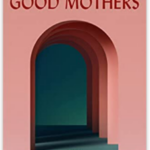






Shocking Results of a 10-Year Study of Pre-K
Dale Farran, a researcher who spent a decade studying over a thousand kids who went to a state-run pre-kindergarten — and a control group of kids that wanted to, but didn’t get in — is shocked and dismayed by what she has discovered:
By 6th grade the pre-k kids were doing worse all around: Worse on reading, math and science scores, more learning disorders, and more discipline problems, including serious ones that got them suspended.
“It really has required a lot of soul-searching,” Farran told Anya Kamenetz on NPR. Having studied early childhood education for decades, Farran is now pondering “what were plausible reasons that may account for this.”
Pre-K for the Rich is Different
One theory she has is that the free pre-k doesn’t look like pricey pre-k. Well-off parents usually send their kids to programs that have lots of time for art, music and, especially, unstructured play. Heck, the richest kids get to play in the forest with sticks and mud.
“This [was] not what Farran is seeing in classrooms full of kids in poverty,” noted NPR. Instead, she was seeing kids stuck tracing letters on worksheets, or trying not to squirm as teachers delivered lectures. The kids also spent a lot of time simply schlepping from one activity to another, while being told to pipe down and don’t touch. Beyond that, the state-run schools were told to provide the kids with five and a half hours of “instructional time” each day.
Pre-schoolers are 4-years-old.
“Nail in the Coffin” of Academic Pre-K
Conducted in tandem with a team of Vanderbilt University researchers, Farran’s study arrives at either the best or worst time: Just as there is talk of reviving Pres. Biden’s “Build Back Better” proposal to provide free, state-run pre-school for all 3- and 4-year-olds.
Dr. Peter Gray, a Boston College Psychology Professor, co-founder of Let Grow, and author of one of the most popular college psychology textbooks, considers the timing auspicious. “If this study doesn’t put the nail in the coffin of academic training to little children,” he avers, “it’s hard to imagine what will.”
The Perfect Study
Here’s how the study unfolded: About 3000 kids applied for the free pre-k program, which was open only to low-income families in Tennessee. A lottery determined who got in, creating a natural A/B split: Two demographically identical groups, one that got into the program staffed by fully licensed teachers, the other a “control group,” on their own till kindergarten.
Of the kids in the control group, the majority — 63% — were simply cared for at home. The rest were pretty evenly divided between Head Start and private childcare. Either way, these were all kids living below the poverty line.
At first, it looked like the kids who’d won the lottery had, well, won the lottery. They did better on academic tests when entering kindergarten. But by third grade, those gains were already reversing. By sixth grade, the pre-k kids were 48% more likely to have committed a behavioral offense, and 75% more likely to have been diagnosed with a learning disorder. Meantime, on the achievement tests, the gap kept growing — with the pre-k kids at the bottom.
All Classwork and No Play Makes Jack…
Gray believes these outcomes were predictable. When kids are pushed into academics before they are ready, he says, it disrupts the natural unfolding of curiosity, mastery and joy. It’s like being forced to take poker lessons before mastering Go Fish. Kids feel lost, bored and dumb. They may decide they hate school, or that the only way to escape is by acting out.
Compare that to plain old playing, where kids discover how to make things happen, try out new ideas, and make friends. This requires learning “self-management” – the ability to hold yourself together enough that other kids want to play with you. Those are real lessons – some of life’s biggest. There’s time for academics later.
Public pre-school “should be play-based and modeled on the successful private pre-schools who have continued with this curriculum despite pressure from parents and some educators to push learning the ABC’s, reading and math from boring handouts,” says Arlene Virga, a retired educator and executive director of a children’s sports association that served tens of thousands of students in New York City.
The Germans Got it Right
This is something the Germans figured out 50 years ago. In a Psychology Today piece on the Tennessee study, Gray recounts an enormous educational experiment in the 1970s:
“The German government was trying to decide whether it would be a good idea, or not, to start teaching academic skills in kindergarten rather than maintain kindergarten as purely a place for play, stories, singing, and the like, as it had always been before. So, they conducted a controlled experiment involving 100 kindergarten classrooms. They introduced some academic training into 50 of them and not into the other 50.
“The graduates of academic kindergartens performed better on academic tests in first grade than the others, but the difference subsequently faded, and by fourth grade they were performing worse than the others on every measure in the study. Specifically, they scored more poorly on tests of reading and arithmetic and were less well-adjusted socially and emotionally than the controls.
Play’s the Thing
Taking these results to heart – and, even better, policy – the Germans decided not to pursue academic pre-k and to keep it more play-based. This is something that researcher Farran is considering now, too: Maybe little kids don’t need intensive training.
Put another way: Maybe play IS intensive training.
Too add more play to your own kid’s life, download our (free!) Let Them Play Kit. And if you are a teacher or administrator who’d like to add more play to your class or school, please download our Let Grow Play Club implementation guide — also free!



Comments are closed for this article.